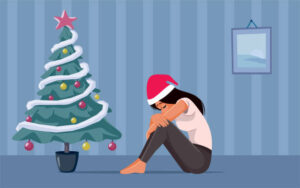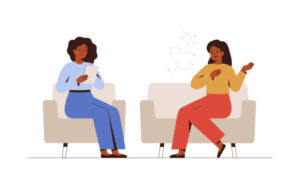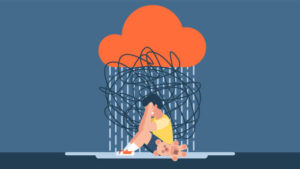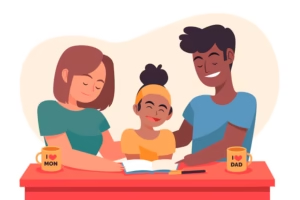Sleep deprivation in college students is a growing concern, affecting their academic performance and overall well-being. College students’ sleep problems are often linked to high academic pressures, social commitments, and irregular sleep schedules. The effects of sleep deprivation on mental health, including increased anxiety and depression, are particularly troubling. According to Hershner and Chervin’s article in the National Institute of Health, 50% of college students exhibit sleep deprivation.1 Unfortunately, sleep deprivation can have immediate mental health effects on college students. Research has shown that sleep, depression, and anxiety are closely related.2 Sleeping issues such as sleeping for the majority of the day, not getting enough sleep to function, and the inability to stay asleep may be markers of mental health challenges.
Due to the prevalence of sleep deprivation outlined by Hershner and Chervin’s article, many students take it upon themselves to find a way to stay awake. Many college students attempt to remain awake through substance abuse, potentially increasing the severity of the sleep problem. According to a 2024 study by Malinauskas et.al, 67% of energy drink users consumed them to compensate for a lack of sleep.3 One may start to use substances to stay awake when the solution truly lies in getting enough sleep for the next day. A dependency on any substance that decreases sleep, although well-intentioned, only causes the need for more sleep, creating a cycle that will only change through healthy sleeping patterns.
Developing healthy habits around sleep is imperative for student’s well-being. According to the Newport Institute’s article “Mental Health Effects of Sleep Deprivation in College Students,” college students can use these tips to improve sleep hygiene4:
To help college students improve their sleep habits, here are some in-depth, actionable tips:
- Limit Technology Use: Decrease screen time before bed by avoiding phones, laptops, and other devices at least an hour before sleeping, as blue light disrupts melatonin production.
- Consistent Sleep Schedule: Pick a set bedtime and wake-up time, even on weekends, to regulate your body’s internal clock.
- Avoid Naps and Caffeine: Steer clear of naps during the day and reduce caffeine intake, especially in the afternoon.
- Exercise Regularly: Engage in physical activity, as it promotes better sleep, but avoid vigorous exercise close to bedtime.
Sleep is an essential part of a college student’s experience, and creating healthy habits around sleep can produce many benefits. It is well known that college is a stressful and busy environment. Learning how to improve sleep for students can significantly boost mental health and academic success by implementing consistent routines and sleep hygiene practices.
If you find that sleep is difficult for you, therapy can help! Therapy can address the stressors impacting sleep, such as anxiety, depression, or others. Techniques are often given to patients to use as tools for relaxation, self-awareness, and support, often resulting in much improved sleep. Protected Roots Integrative (PRI) Treatment Center offers evidence-based treatments tailored to the unique sleep needs of each individual, ensuring a holistic approach to a good night’s sleep.
References:
- Oginska H, Pokorski J. Fatigue and mood correlates of sleep length in three age-social goups: school children, students, and employees. Chronobiol Int. 2006;23(6):1317–1328.
- Buysse DJ, Angst J, Gamma A, Ajdacic V, Eich D, Rössler W. Prevalence, course, and comorbidity of insomnia and depression in young adults. Sleep. 2008;31(4):473–480.
- Malinauskas BM, Aeby VG, Overton RF, Carpenter-Aeby T, Barber-Heidal K. A survey of energy drink consumption patterns among college students. Nutr J. 2007;6:35.
- Newport Institute Staff. (2022, February 24). The mental health effects of sleep deprivation in college students. Newport Institute. https://www.newportinstitute.com/resources/mental-health/sleep-disruption/
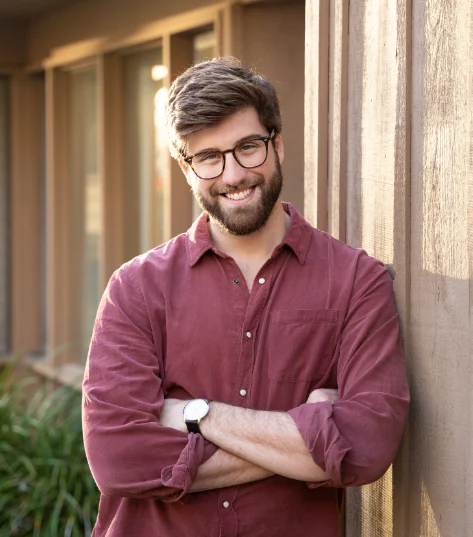
Dr. Warter received his doctorate in Clinical Psychology from The Wright Institute in Berkely, California, completed his Predoctoral Internship at USC’s Children’s Hospital Los Angeles, and was a Postdoctoral Researcher at USC’s Institute for Integrative Health and Wellness. Dr. Warter has also been trained at UCSF School of Medicine, Kaiser Permanente, and in community clinics in rural, underserved communities in Argentina and Paraguay. Dr. Warter has received training in providing parents with guidelines to help prevent behavior problems and enhance communication skills and strategies to promote children’s social, emotional, and academic competence. Dr. Warter has also published and presented at the University of Naples and the University of Buenos Aires on subjects related to Third Culture Kids and the impacts of Social Media on Personality and Self Esteem.


